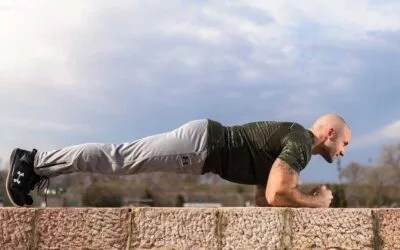Hip circle bands are excellent equipment to help get rid of fat on the butt. They work by applying pressure to the area and breaking up the fat cells. Using hip circle bands have several benefits like it can help to reduce the overall size of the butt and make it look more toned and firm.
Additionally, hip circle bands can also help improve circulation in the area, further reducing cellulite and promoting a smoother appearance. To use hip circle bands, simply wrap them around the widest part of your hips and squeeze for 10-20 seconds at a time. For the best results, repeat this process a few times a day.
While there is no such thing as a “quick fix” when lifting and toning the butt, hip circle bands can definitely help speed up the process. Applying pressure and helping to break up fat cells can give you a firmer and more toned appearance in just a few weeks.
So, you’re looking for a way to lift and tone your butt quickly and get rid of hip dips? Hip circle bands are definitely worth a try!
What Causes Hip Dips.
A few different factors can contribute to the development of hip dips. First and foremost, it’s important to note that everybody’s body is different, and some people are simply more prone to developing hip dips than others.
However, a few things can increase your likelihood of developing them, such as carrying extra weight in your hips and thighs, having a genetic predisposition, or going through puberty.
If you think that doing a million crunches will give you a six-pack and shrink your waistline, you’re sadly mistaken. In fact, overtraining your abs actually make them bigger, not smaller. The same goes for your butt muscles.
When you work a muscle group to the point of exhaustion, it breaks down and becomes inflamed. This inflammation signals to your body that it needs to repair the muscle, and in the process, the muscle becomes larger and stronger.
So if you’re constantly doing exercises that target your core and butt muscles, like crunches and squats, you’re actually making these muscles bigger, not smaller. The solution is to focus on other body areas and let your core and butt muscles rest.
This is where hip circle bands come in. Hip circle bands are resistance bands that you wrap around your legs, just above your knees. They provide resistance when you walk, run, or do lower-body movements.
This resistance forces your core and butt muscles to work harder, breaking down and becoming inflamed. However, because you’re not overtraining these muscles by doing too many repetitions of the same exercise, they’ll recover quickly and become stronger without getting bigger.
So if you want to reduce the size of your hips and thighs, focus on lower-body exercises that don’t target your butt and core muscles directly. Incorporating hip circle bands into your workout routine is a great way to do this.
Benefits of Using Hip Circle Bands.

Hip circle bands are a versatile and affordable piece of fitness equipment that can be used for a variety of exercises. Here are some of the reasons and benefits you may want to consider using hip circle bands in your workout routine:
1 Provide Resistance for Performing Different Exercises.
Hip circle bands can help you perform various exercises, including squats, lunges, hip thrusts, and donkey kicks. By providing resistance, it help you build strength and improve your technique.
Booty bands are designed to be worn while performing squats, deadlifts, and hip thrusts to maximize glute activation. They’re called booty bands for a reason, and it’s because you’ll stimulate your glutes tenfold if you wear them during squats, deadlifts, and hip thrusts.
All you do is wrap them around your thighs and squat with good form. Make sure your stance is far apart so that the band can create pressure. When doing squat and deadlifting, many individuals have difficulty activating all of their glute muscles (gluteus maximus, medius, and minimus). You will notice a difference with booty bands.
2 Benefits of Using Hip Circle Bands To Prevent Injury.
Hip circle bands can help you build strength and improve your technique by providing resistance. This can help you avoid injuries and become a better, more efficient athlete.
The first step in reducing sports-related injuries is strengthening muscles in your hips, core, and glutes. A solid core and glutes are as essential for stability as the hips. The glutes and core (some people consider the glutes part of the core) are important stabilizing muscles for most activities and exercises.
Second, you will avoid injuries while doing heavy lifts such as squats and deadlifts because your muscles are more activated. You are considerably less likely to harm your joints if your muscles are totally engaged during the lift.
Your stabilizer muscles will be in full force. The greatest risk of suffering an injury when squatting or doing other significant exercises is due to a lack of activation or poor form.
3 Helps Maintain Good Form During Squats & Deadlifts.
Hip circle bands help keep your knees pushed outwards during squats and deadlifts, which allows you to maintain good form and avoid injuries. At the leg level, many people have a problem when they lift weights. Their knees bend in or out.
This happens because they do not activate their muscles correctly. To fix this, you will need to put pressure on the band by using booty bands. In addition, since you wear booty bands while squatting, you will be able to go deeper in your range.
4 Improves Hip Mobility and Range of Motion.

Hip circle bands are an excellent way to warm up on a lower-body day! Even if you don’t intend on using them during your workout, warming up with them will be beneficial.
They do a wonderful job of priming the lower body muscles, getting them warm and increasing blood flow, which leads to increased mobility and range of motion. It’s much more successful and efficient than performing bodyweight squats to get warmed up.
This is because you’ll be putting out preferably more power by activating all of the muscles, including stabilizer muscles. Overall, most people think of “dynamic stretches,” which is fantastic when it comes to mobility.
However, simply getting blood flowing and lubricating the joints while warming up your muscles will significantly enhance your mobility for the following workouts. But first, do your butt some favour and grab the best hip circle bands for the lower body by DMOOSE.
These high-quality hip circle bands guarantee optimum comfort. They are made of 100% cotton elastic and will not slide down your sweaty legs. They are light and portable, allowing you to keep up with your regimen even on the go.
Exercises to Reduce Hip Dips Using Hip Circle Bands.
Hip circle bands are an excellent way to add resistance to your workout without using weights. They’re also perfect for travelling, as they’re small and light enough to pack in your suitcase. Here are some torching exercises you can do with a hip circle band:
1 Glute Bridge.

Place the band around your thighs, just above your knees as shown on picture. Lie on your back with feet flat on the ground and your knees bent. Keep your heels into the ground and lift your hips off the ground, squeezing your glutes at the top of the movement. Lower back down and repeat.
2 Fire Hydrant.

To do this, start in a quadruped position with the band around your thighs, just above your knees. Raise your right leg to the side by keeping your hips straight. Repeat on the other side to complete this full stretch.
3 Clamshell.

Lie on the right side with the band wrapped around your thighs, just above your knees. Bend your knees, making a 45-degree angle and keep your feet together. Open your top leg and keep your bottom leg stationary. Return to the initial position and repeat on the left side.
4. Lateral Shuffle.

Stand on your feet hip-width apart, take the band and place it around your ankles. Step out to one side with your foot, then quickly follow with your other foot. Continue shuffling side to side for the desired distance.
5. Forward Lunge.

Stand hip-width apart and loop the band around your lower thigh. With one foot forward, bend both legs at 90 degrees. Push off your front leg to return to the beginning position and repeat with the other leg.
6. Backward Lunge.
Loop the band around your lower thigh, standing with your feet hip-width apart. Step backward with one leg, lowering your body until both legs are bent at 90 degrees. Push back off your front leg, return to the starting position, and repeat with the other leg.
7 Skaters.

Stand on one leg with the band around your ankles. Bend your knee and kick your other leg behind you, landing on the ball of your foot. Quickly jump to the other side, bringing your kicked leg forward and straightening your standing leg. Repeat, alternating sides.
Bottom Line.
Using hip circle bands are a versatile, affordable, and easy-to-use piece of fitness equipment that have several benefits like it can help you to build strength, improve your technique, and avoid injuries. They also help you from defining your glutes muscles and get rid of hip dips. If you’re looking for a way to spice up your workout routine, consider giving them a try!
+4 Sources
Freaktofit has strict sourcing guidelines and relies on peer-reviewed studies, educational research institutes, and medical organizations. We avoid using tertiary references. You can learn more about how we ensure our content is accurate and up-to-date by reading our editorial policy.
- Andersen, Vidar, et al. “Acute Effects of Elastic Bands as Resistance or Assistance on EMG, Kinetics, and Kinematics During Deadlift in Resistance-Trained Men.” Frontiers in Sports and Active Living, vol. 2, Nov. 2020, p. 598284. PubMed Central, https://doi.org/10.3389/fspor.2020.598284.
- Lans, Charlotta, et al. “Peripheral Muscle Training with Resistance Exercise Bands in Patients with Chronic Heart Failure. Long‐term Effects on Walking Distance and Quality of Life; a Pilot Study.” ESC Heart Failure, vol. 5, no. 2, Nov. 2017, pp. 241–48. PubMed Central, https://doi.org/10.1002/ehf2.12230.
- Lopes, Jaqueline Santos Silva, et al. “Effects of Training with Elastic Resistance versus Conventional on Muscular Strength: A Systematic Review and meta-Analysis.” SAGE Open Medicine, vol. 7, Feb. 2019, p. 2050312119831116. PubMed Central, https://doi.org/10.1177/2050312119831116.
- Yeun, Young Ran. “Effectiveness of Resistance Exercise Using Elastic Bands on Flexibility and balance among the Elderly People Living in the Community: A Systematic Review and meta-Analysis.” Journal of Physical Therapy Science, vol. 29, no. 9, Sept. 2017, pp. 1695–99. PubMed Central, https://doi.org/10.1589/jpts.29.1695.









































 Workout
Workout

 Meditation
Meditation






 Podcast
Podcast
 E-book
E-book














